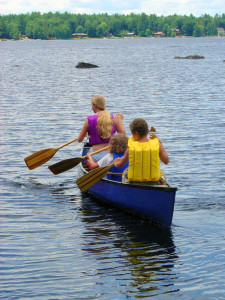
Does your child have an independent streak and want to travel the world before they become an adult?
Every year, we cover some of the best, most creative, and wildest summer camp options around the country. Some of these are new while others are just worth mentioning because they stray so far from the sleepover camp by the lake. Either way, if you don’t have your child’s summer plans lined up yet, here are some ideas.
Washington, DC is a popular summer vacation destination, but if you’d like to have some adult time during the trip, drop the kids off for one of the Smithsonian’s summer camps. They run weekly on either a half- or full-day basis covering all sorts of topics.
Have an Apple Store nearby? Think your kids don’t spend enough time on devices? Each Apple Store runs Apple Camp over the summer, where students learn how to better use Apple devices to accomplish creative projects like moviemaking and digital photography. The best part? It’s free!
Does your child have a destructive streak? Why not turn that into a career? At the Missouri University of Science and Technology, campers get to learn how to use explosives to uncover new mine shafts. They practice on all sorts of objects, including steel beams, watermelons, and even a whole chicken.
Westcoast Connection & 360 Degree Student Travel
Does your child have an independent streak and want to travel the world before they become an adult? These companies offer student trip experiences unlike any other. From baseball trips to community service adventures in the developing world, campers see things that most adults can’t even dream of.
There’s been a lot of press about how far behind girls are in the STEM subjects. Girls Who Code might be the remedy. Their summer immersion program not only teaches campers about creating apps, but also gives them job experience at the hottest tech companies near the camp’s location (there are 14 around the country). It’s a definite resume builder.
There are quite a few camps that focus on cooking, but only one has access to the resources of the Food Network and The Chew. Students go completely from farm to table to create experiences for the taste buds. It might be a window into a completely unconsidered career path.




